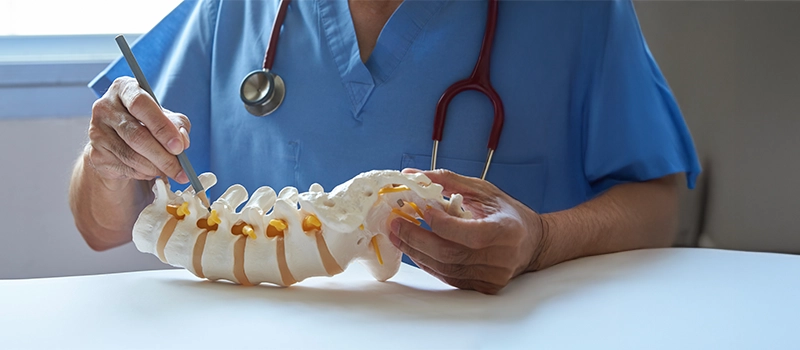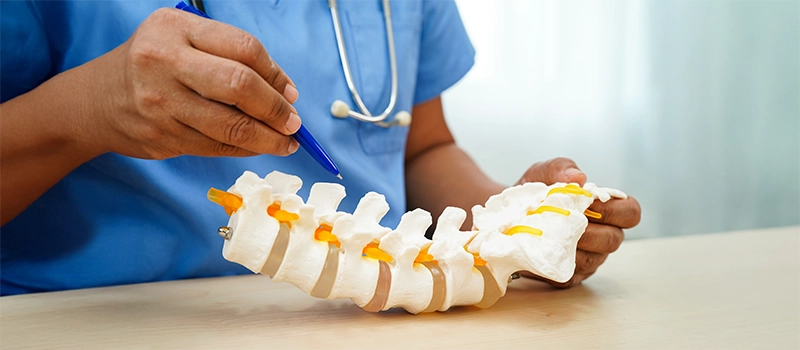
MS Orthopedics: A Complete Guide to Admission, Syllabus, and Career Prospect
MS Orthopedics is one of the most prestigious and sought after postgraduate course in field of medical science. As an advanced specialization in medical surgery, it draws students who aspire to make significant impact in the healthcare industry by specializing in musculoskeletal conditions. This comprehensive guide will explore everything you need to know about MS Orthopedics including the admission process, syllabus and career opportunities.
What is MS Orthopedics?
Master of Surgery (MS) in Orthopedics is a three-year postgraduate program designed for MBBS graduates who wish to specialize in orthopedic surgery. This course equips students with the necessary skills and knowledge to treat and manage disorders related to bones, joints, muscles and ligaments. MS Orthopedics is recognised by the Medical Council of India (MCI) and serves as a gateway to becoming a proficient orthopedic surgeon.
Throughout the program students gain in-depth knowledge of both surgical and non-surgical treatments for musculoskeletal disorders including conditions like fractures, arthritis, spinal injuries and congenital abnormalities. Additionally, the program includes extensive hands-on training and practical experience, preparing students to handle complex medical conditions in real-life clinical settings.
Why Study MS Orthopedics?
Choosing MS Orthopedics offers several advantages for aspiring medical professionals:
- With the increasing prevalence of musculoskeletal conditions and sports injuries, orthopedic specialists are in high demand worldwide.
- MS Orthopedics keeps students up to date with latest advancements in orthopedic surgery including minimally invasive techniques, joint replacements and innovative treatments.
- The course factors like concentration, analytical thinking, patience and emotional resilience essential for excelling in a high-stress medical environment.
- Orthopedic surgeons play a crucial role in improving the quality of life for patients suffering from bone and joints disorders making it highly rewarding field.
- MS Orthopedics opens doors for practicing in hospitals, clinics and research institutes both in India and abroad.
MS Orthopedics Admission Process
The admission process for MS Orthopedics is highly competitive and follows a systematic approach:
Eligibility Criteria:
- Completion of an MBBS degree from a recognized institution with a minimum of 55% marks.
- Candidates must have completed a rotating internship during their MBBS course and hold permanent registration with the Medical Council of India (MCI) or a State Medical Council.
Entrance Exams: To secure admission into top MS Orthopedics colleges candidates must clear national or institute-level entrance exams. Some of the popular entrance exams include:
- NEET PG: Conducted by the National Board of Examinations (NBE), it is the most common entrance exam for MS Orthopedics.
- AIIMS PG: A computer-based exam conducted by the All-India Institute of Medical Sciences (AIIMS).
- PGIMER: Held by the Post Graduate Institute of Medical Education and Research (PGIMER) in Chandigarh.
- JIPMER PG: Conducted by the Jawaharlal Institute of Postgraduate Medical Education and Research (JIPMER) for admissions to MS programs.
Counselling and Interview: After clearing the entrance exam candidates will attend counselling sessions which may include group discussions and personal interviews to assess their aptitude and suitability for the course.
Merit-Based Selection: Based on exam scores, counselling results and interview performance colleges will release a merit list and offer seat allotments to successful candidates.
MS Orthopedics Syllabus
The MS Orthopedics syllabus is divided into two primary segments: General Orthopedics and Traumatology: Key topics covered in the program include:
General Orthopedics:
- Infections, tumors and congenital anomalies
- Peripheral nerve injuries and microsurgery
- Operative techniques and surgical approaches
- Fracture management including closed reduction, external and internal fixation.
- Treatment of degenerative diseases like arthritis and osteoporosis.
- Imaging techniques and diagnostic procedures.
Traumatology
- Fracture and dislocations management
- Sports medicine and arthroplasty (joint replacements)
- Amputations and clinical diagnosis of bone-related emergencies.
- Splinting techniques and management of open fractures.
- Management of spine injuries and handling emergency cases
- Biopsy procedures and patient communication
Recommended Books:
- Orthopedic Imaging by Adam Greenspan
- Essentials of Orthopedics by J. Maheshwari, Vikram Amhaskar
- Miller’s Review of Orthopedics by Mark D. Miller, Stephen R. Thompson
- Clinical Orthopedic Diagnosis by Sureshwar Pandey, Anil Kumar Pandey
Top Colleges for MS Orthopedics in India
Several prestigious medical institutions in India offer MS Orthopedics programs. Some of the top colleges include:
| College Name | Location | Average Annual Fees (INR) |
| AIIMS | New Delhi | 10,000 |
| PGIMER | Chandigarh | 3,370 |
| Christian Medical College | Tamil Naidu | 1,77,800 |
| JIPMER | Pondicherry | 3,810 |
| Kasturba Medical College | Manipal | 34,70,000 |
| AMU | Uttar Pradesh | 4,30,000 |
| Maulana Azad Medical College | Delhi | 15,000 |
Career Prospects After MS Orthopedics
After completing MS Orthopedics graduates can explore various career opportunities in both clinical and academic fields. Some of the job profiles include:
- Orthopedic Surgeon: Conduct surgeries to treat fractures, bone tumors, joint replacements and other musculoskeletal conditions. Average Salary: INR 20.39 LPA.
- Medical Consultant: Provide expert advice on orthopedic issues assess patient conditions and recommend treatments. Average Salary: INR 8.64 LPA.
- Medical Consultant: Provide expert advice on orthopedic issues assess patient conditions and recommend treatments. Average Salary: INR 8.64 LPA.
- Clinical Associate: Supervise clinical trials, manage patient data and assist in medical research. Average Salary: INR 5LPA.
- Orthopedic Professor: Teach and train medical students in the field of orthopedics at medical colleges. Average Salary: INR 4.08 LPA.
- Pediatric Orthopedic Surgeon: Specialize in treating children with bone and joint disorders, including congenital defects. Average Salary: INR 13 LPA.
Further Studies and Higher Education Opportunities
After completing MS Orthopedics, graduates can pursue further education to enhance their expertise:
- Diplomate of National Board (DNB) in Orthopedics
- Post Graduate Diploma in Orthopedics
- PhD in Orthopedics
These qualifications open doors to specialized roles and academic careers in the field of orthopedic medicine and surgery.
MS Orthopedics is an excellent choice for those passionate about medicine and surgery, particularly in the field of musculoskeletal health. With rigorous training, extensive practical exposure, and a wide array of career opportunities, it offers a fulfilling and rewarding career path. Whether you’re interested in clinical practice, research, or teaching, MS Orthopedics provides the foundation for success in the medical world.
Frequently Asked Questions:
- Can MS Ortho do surgery?
Surgical Training: MS Orthopedics Course place a strong emphasis on surgical training, as Orthopedic Surgeons are trained to perform a wide range of surgical procedures.
- Which is better MS Ortho or D Ortho?
Yes, DNB Ortho is better and much superior than MS Ortho. DNB Ortho admission is held at Central level while MS Ortho admission can be done at the institute level as well. Also, DNB Ortho has much recognition abroad as compared to the other PG courses offered in India in the field of medicine.
- What is the salary of MS Ortho surgeon in India?
Ms Orthopedics salaries in India the estimated salary for a Ms Orthopedics is ₹90,000 per month.
- What is the salary of Ortho PG in India?
MS in Orthopaedics at Kalinga Institute of Medical Sciences Placements
| Particulars | Statistics (2023) |
| Highest Salary | INR 63.00 Lakh |
| Median Salary | INR 17.50 Lakh |
- How many MS Ortho seats are there in India?
| Course Name: | MS Orthopaedics |
| Course Duration: | 3 Years |
| Total Colleges/Hospitals | 388 |
| Total Seats | 2603 |
| Government Quota Tuition Fees | ₹ 1150/Year – ₹ 5500000/Year |


